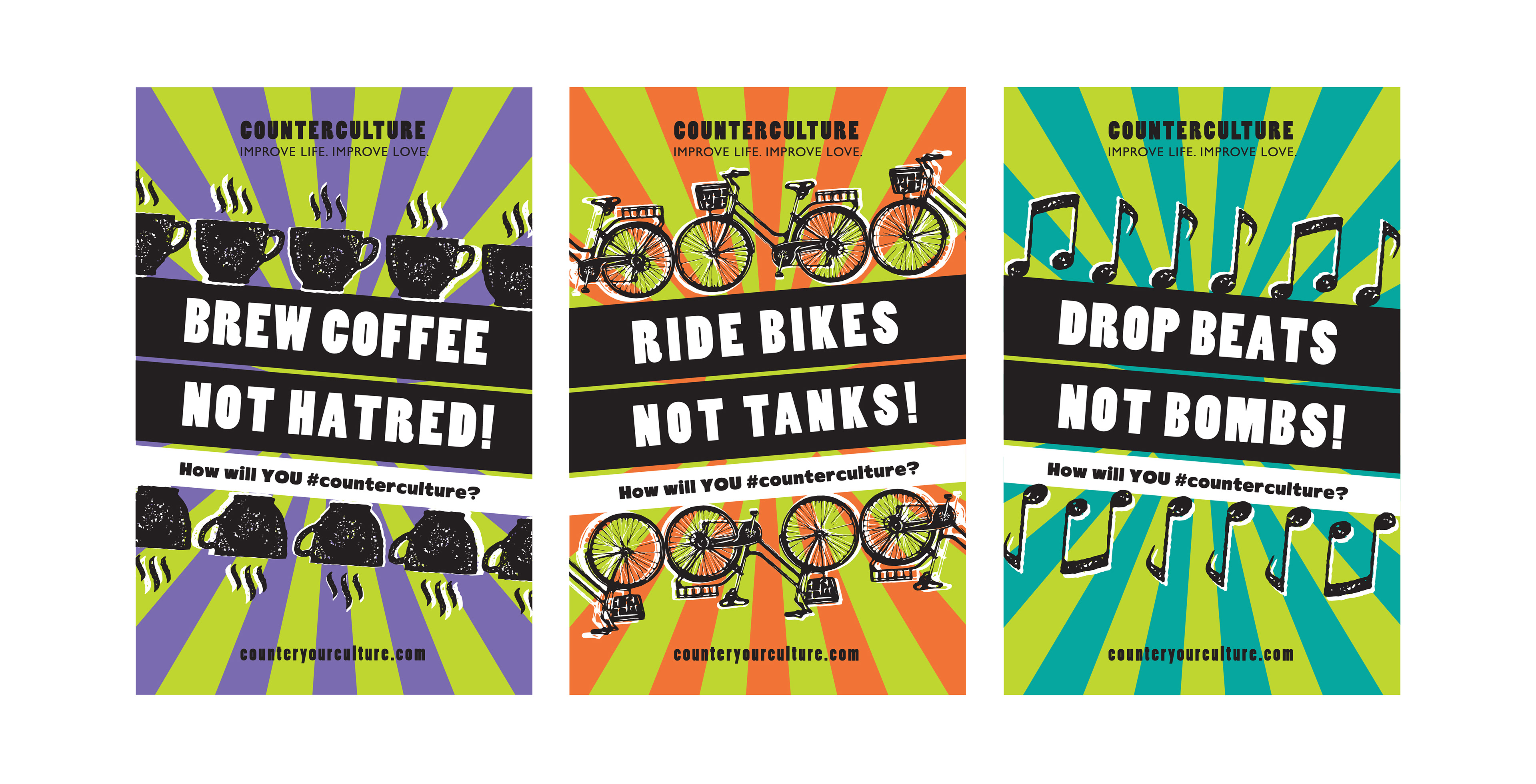
In light of personal research of propaganda and design in the 60’s counterculture era, I was inspired to base my campaign on a commonly known phrase from the protests of the time, “make love, not war.”
These campaign posters are designed to be viewed together (above) just as various forms of propaganda have been displayed in times past. The seemingly "off" center poster mimics my campaign's call to action in that it stands out different from the rest. Although some may see this as unsettling, I view it as an allegorical representation of the people that shake up history.
I have personally noticed parallels between the “flower child” generation and the millennial generation, from civil and gay rights, to a war on drugs. One of the most defining aspects both generations have in common, is that they are comprised of a group of young adults that grew up with the reality of war, and are tired of it. The protests of the Vietnam War are now being seen in our own generation, where internet hashtags, Instagram posts, and Tweets are being used as the voice of the people standing against “The Man.”
My campaign pleads for humanity to take a stand against war and violence, and to challenge commonly accepted political and social norms, with the goal to ultimately improve the quality of life. The phrases I chose to use throughout my campaign: ride bikes not tanks, drop beats not bombs, and brew coffee not hatred, appeal to trending interests of the millennial generation yet use power words (tanks, bombs, hate) to leave a lasting emotional impression. Although it’s difficult to gain credibility with a new and rising campaign/company, the tagline “Improve life. Improve love” for Counterculture, my campaign’s brand, informs the consumer of what we stand for. As long as someone is on board to improve life and love, we gain credit through mutual agreement. As far as logistics are concerned, the question “how will you #counteryourculture?” draws the viewer to their own logical conclusion. Although concerns may arise when a viewer may not necessarily agree with an anti-war movement, the posed question personalizes the campaign to each individual. In addition, the logical persuasion to chose “this” and not “that” seems to be an easy trade off. (After all, it’s much easier to ride a bike than control an army tank.)